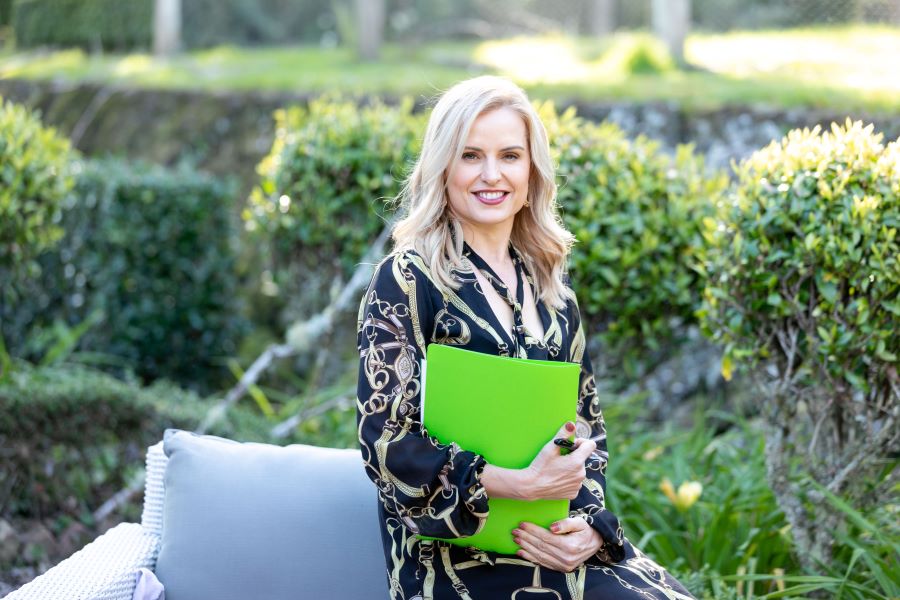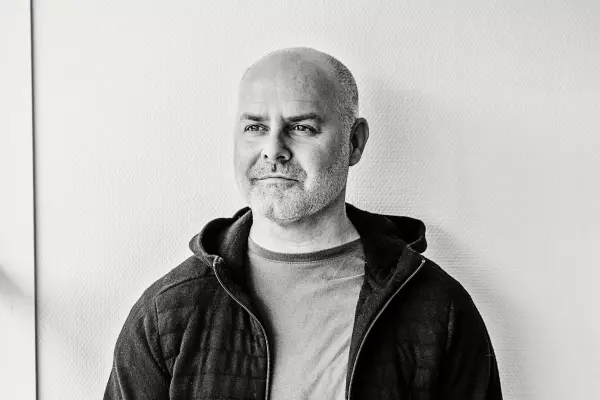Tim (not his real name) was in his late 40s when his marriage of 20 years broke down. A senior executive in a multinational company, he juggled work in different time zones and negotiated with what he called “the movers and shakers of New Zealand, people in the NZX top 50”.
So he thought he knew how to deal with pressure. Then his divorce hit him like a hammer. As well as having to tell his two children and divide assets that included a house in a smart Auckland suburb, he had to keep up with his hectic workload.
“In a perverse way it did help to go to work. My whole life had exploded. So it was good there was some structure, some normality in life,” says Tim.
“But it was very hard managing the emotions. Men are taught to handle things on their own. So that’s how I tried to handle my divorce.
“I felt very isolated. I would put my game face on, go to the office and try to muscle through it. But you’re running on adrenaline, and it’s exhausting. At lunchtime, I was not eating. I was just ‘crashing’ in my car, almost passing out with exhaustion. Just sitting in the car like a dummy, rebooting myself to go in for the afternoon.
“I couldn’t talk to anyone. Most couples we knew took my ex’s side, without even knowing the details. I think that’s pretty common – people rush to the woman’s side in the divorce and say things like, ‘Oh, that poor woman. What has he done?’”
“The divorce took 19 months. For a while, it got very nasty. My ex would email me at work every day with outlandish claims. I would be so wound up I’d break into a sweat. My stomach would be churning. I’d have to go off to the bathroom and vomit. Then I’d wipe myself down and go back out and try to get on with work as if nothing had happened.
“It’s like water torture. It just wears you down. You think you are on top of it, doing okay, but you’re not.”
Divorce coach Bridgette Jackson often sees this kind of emotional turmoil. After her own difficult divorce cost her $500,000 in legal fees, she set up Equal Exes in Auckland in 2019 with the goal of helping people “divorce well” – or as well as possible, anyway. She describes it as “guiding people through the process, so both parties receive a fairer financial and emotional result”.
Divorce coaches are not lawyers, although they may have legal, mediation or counselling training. Their main goal is to save clients time, pain, and money by providing emotional support and practical help. This can be anything from mediation advice and help in drawing up a workable co-parenting plan, to advice on what legal papers you need to collate before seeing a lawyer. “We offer help negotiating the legal process, not legal help,” is how Jackson puts it.
Men now make up 30% of her clients. “Men can feel very lonely when they’re divorcing. A man often has less of an emotional support network than a woman. He’s less likely to talk to his friends about their divorce – and he may be grieving about not seeing his children as much.
“He probably won’t tell anyone at work. It might be a question of his pride, and his privacy, but it’s also office politics. A man often thinks if he tells anyone at work, he’ll be seen as a failure – and people will get him when he’s down.”
 Equal Exes founder Bridgette Jackson.
Equal Exes founder Bridgette Jackson.
Adèle Théron says New Zealand men are particularly stoic when it comes to divorce – even if it kills them. She founded Naked Divorce to provide online coaching in “divorce strategy”. Although she’s mainly based in New Zealand and the UK, her online clients are all over the globe.
“European men are ‘stiff upper lip’ about divorce at first. But once they develop trust, they spectacularly lose it. All the tears come out. American men struggle with their self-image and how they will be perceived by others now their ‘perfect’ life has gone.
“But for men in New Zealand, divorce is a silent, torturous battle. They don’t talk to anyone about it. They often feel they have to just ‘crack on’. They may develop a drinking or a drug problem to cope. And they don’t like being alone. Often, they serial-date as fast as possible, to try to fill the hole in their life.”
Théron’s services include an intensive 21-day programme that aims to “process and stabilise” emotions. “It’s designed to get you back on track quickly, back to feeling stable. You’re already going through the transformative trauma of divorce. This is not the time to also pick apart your childhood and abandonment issues.”
She points out that as well as being the end of a love relationship, divorce involves high-stakes negotiations about financial assets. Because negotiations generally go better when you’re calm and well prepared, it helps to be able to talk through your options before you get to the lawyers.
Tim didn’t use a divorce coach to help him work out how to split the relationship assets, but wishes he had. “It would have saved pain, time and money. I had a good lawyer. But lawyers have no vested interest in bringing arguments to a swift conclusion – their business model is about billable hours. Divorce arguments about assets can escalate so quickly. You look back and realise, “That pointless back-and-forth with my ex ended up costing me five grand in legal fees.”
Kimberlee Sweeney runs Degrees of Separation divorce coaching in Auckland. She says 50% of her clients are men. “A lot come to me when they’re trying to have conversations with their partner about what it would look like to split assets. If they can sort through that before the lawyers, it saves a chunk of legal fees. And they sometimes appreciate a woman’s point of view on things like co-parenting plans.
“When it comes to asset splits, men are usually okay about things like dividing up the value of the house and the car, but they find it very hard to ‘hand over half’ of their superannuation and savings – especially if the wife has been at home.
“We can script how to have those conversations and discuss different variations of asset splitting. For example, if she wants to keep the family home, perhaps he can keep the family bach. There are all sorts of variations that are fair and workable.”
Deciding on co-parenting arrangements, and how to tell the children, can also be worked out. Divorce coaches say men are often surprised about the sheer time, logistical details and energy it takes to parent youngsters.
“Men tend to focus on the money side of the situation – spousal maintenance, economic disparity, and child support,” explains Bridgette Jackson. “But they also want to know if they’re going to see their children enough. Most men do want a 50-50 arrangement in co-parenting. But the man has probably not been the main caregiver in raising the children. So he may not understand what it involves.
“It’s also very easy to get worked up and fire off an email, then regret it later. It’s helpful to have someone impartial to tell you, ‘The email you just drafted is going to be perceived as antagonistic by your ex. You may not mean it, but that’s how it’s going to look. Here’s how you can redraft it to get a better result.”
Now that Tim’s divorce is in his rear-view mirror, he says he wishes he had spoken to someone he trusted. “In hindsight, I should not have tried to cope with my divorce alone. It’s better to get someone to give you impartial advice. You need a sounding board.
“Personally, I think a divorce coach is useful because they’re a professional. By making it a commercial relationship, it helps you focus. You think, ‘I’ve paid you a fee. You have the experience. Therefore, I will listen to you.’
“It sounds corny, but my divorce has given me a fresh perspective. I have two children I love, who love me. I’m in a great place, mentally, emotionally, and physically.
“In the past I looked down on people who needed counselling or help. I thought they just needed to take a concrete pill and harden up. I don’t think that any more. It’s been a lesson.”
How to handle divorce without derailing your career
Don’t read divorce emails at work
Set up either a separate email address for all divorce-related correspondence or an alert in your inbox to automatically move emails from your ex or the lawyers into a folder. Some workplaces do monitor work emails, so this move both raises your privacy and lowers your stress levels.
As Kimberlee Sweeney explains, “It’s especially helpful if you’ve got an ex who’s bombarding you with emails. Instead of raising your blood pressure or you losing it at work, you can choose when you’re ready to receive them. Maybe you check once a day after work, or on the weekend.”
Take notes at work – because your memory may be shot
When your body is under stress, it overproduces or underproduces the stress hormone cortisol. This affects the functioning of your hippocampus, a complex brain structure deep in the temporal lobe. It has a major role in memory and learning.
“It’s not uncommon to feel a brain fog during this time,” explains Adèle Théron. “Even if you’ve always had a great memory, don’t rely on it now. Arm yourself with a portable laptop or notebook and write everything down.”
Buffer in extra time for projects at work
“Don’t try to bury yourself in work so you block out your emotions. Your productivity may decline, sometimes by up to 40%. So put less on your plate if you can, and add a buffer of time to projects,” says Théron.
Tim agrees. “During my divorce, I would be physically present in meetings, but mentally I would often be reflecting about personal things. You keep telling yourself, ‘Get it together. Focus.’ But at the back of your mind there’s always something else going on.”
Decide if you need to take leave
Should you tell your colleagues or boss that you’re going through a divorce?
Théron acknowledges the risks. “I wouldn’t tell everyone in the office your sob story. The business world is ruthless when it comes to promotions and advancements. They don't want you crying at the water cooler. You’ll just wreck your prospects for the future.
“If you need time off to get yourself together, try to use your leave. You can say, ‘I’m going through some personal challenges at the moment. I’ll need to take leave now.’”
Says Kimberlee Sweeney, “If your divorce is amicable and you’re just sorting through things logically with the lawyers, work doesn’t need to know. But if you do need a few days off for your mental health, you can ask for leave.”
Tim favours this approach. “With hindsight, I should have asked for one or two weeks’ leave to sort my head out. Six months into my divorce, I’d lost so much weight, people were starting to talk. I spoke with my managing partner over a coffee and said, ‘Here’s what’s happening with me.’ His comment was, ‘You could win an Oscar for acting. I never knew this was going on.’” He was relieved. I’d lost so much weight, he was wondering if I was ill.”
Practise self-care
Kimberlee Sweeney explains: “A lot of simple pleasures go out the window as a relationship breaks down. It makes a tough time even worse. I ask clients, ‘Think about times you felt happy and healthy. What were you doing then that helped you feel that way? Can you do it now?’ For some men it might be golf, sailing or going to the gym. Reconnecting with hobbies reconnects you with the world.”
This story was originally published in October 2021












